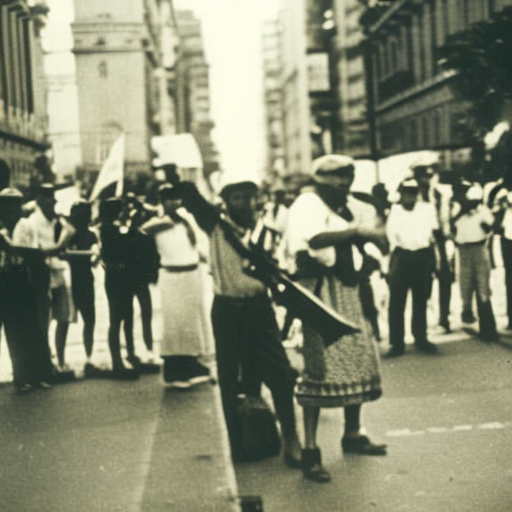Brazilian Revolution of 1930: Overthrowing the Old Order
The Brazilian Revolution of 1930 was a significant political upheaval that resulted in the overthrow of President Washington Luís and the end of the Old Republic. This revolution marked a turning point in Brazilian history, leading to the rise of Getúlio Vargas and the establishment of a new era in Brazilian politics.
Background
In the early 20th century, Brazil was facing a series of economic and political challenges. The country’s economy heavily relied on coffee exports, which suffered from price fluctuations and overproduction. This economic instability, combined with widespread corruption and political patronage, led to growing discontent among the Brazilian population.
Causes
The immediate trigger for the revolution was the presidential elections of 1930. President Washington Luís, who belonged to the dominant coffee oligarchy, supported the candidacy of Júlio Prestes, a fellow coffee planter. However, the opposition, led by Getúlio Vargas, rallied behind the candidacy of João Pessoa, the governor of Paraíba.
The Revolution
The revolution began on October 3, 1930, when a group of military officers, dissatisfied with the electoral process, staged a coup in Rio Grande do Sul. This initial uprising quickly spread throughout the country, as various regional leaders and dissatisfied factions joined the revolt. The military, along with civilian supporters, marched towards Rio de Janeiro, Brazil’s capital at the time.
Overthrow of President Washington Luís
Facing the imminent threat of a military takeover, President Washington Luís attempted to negotiate a peaceful resolution. However, his efforts were in vain, as the revolutionaries demanded his immediate resignation. On October 24, 1930, President Washington Luís stepped down, effectively ending the Old Republic.
Getúlio Vargas: The New Leader
Following the overthrow of President Washington Luís, Getúlio Vargas emerged as the leader of the revolutionaries. Vargas, a charismatic and populist politician, quickly consolidated his power and established a provisional government. He promised to address the grievances of the Brazilian people and bring about much-needed reforms.
Legacy and Impact
The Brazilian Revolution of 1930 had a profound impact on the country’s political landscape. It marked the end of the Old Republic, characterized by the dominance of coffee oligarchs, and ushered in a new era of populism and authoritarianism under Vargas. Vargas implemented a series of reforms, including labor rights, industrialization, and centralization of power, which transformed Brazil’s political and economic landscape.
Conclusion
In summary, the Brazilian Revolution of 1930 was a pivotal moment in Brazilian history. It brought an end to the Old Republic and established Getúlio Vargas as the new leader. The revolution was driven by economic instability, political corruption, and discontent among the Brazilian population. Vargas’s rise to power marked the beginning of a new era in Brazilian politics, characterized by populism and authoritarianism. The legacy of the revolution can still be felt in Brazil today, as it laid the foundation for many of the country’s political and economic institutions.












